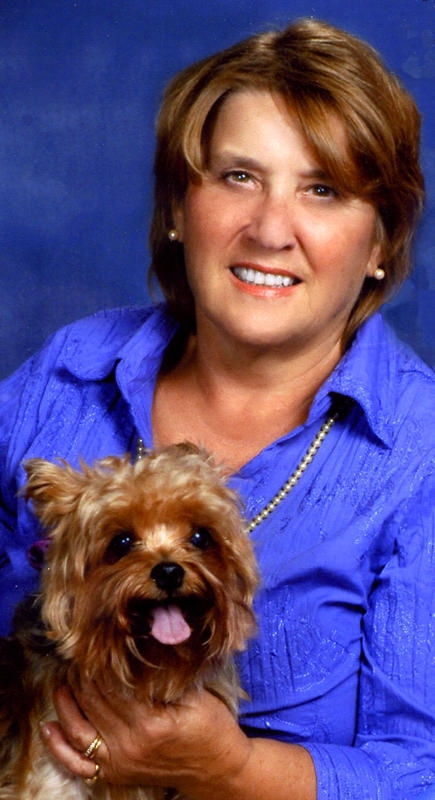

“We get up in the morning; sit at the kitchen table, drinking our morning coffee, planning our day. The biggest decision of the day: where to go for lunch!” A former colleague of mine gave me an accounting of her daily routine several years ago. At the time of this conversation my husband and I were only contemplating retirement. As I listened to this retiree joyfully relay how she and her husband spent every morning as a “retired couple” – I was thinking, “Yuck- this is not the way I want to spend my day-every day, my biggest decision being where to go for lunch? Boring! Not my idea of how to spend the last two decades of my life-our life.
Eight years later, I am still of that thought- has to be more to my day, than drinking coffee, planning for the day’s lunch site. When I decided to leave the real work world, so did my husband. Try as I might, I could not convince him to continue his role as a small business owner. Like most baby boomers, we had both worked the majority of our lives – no stay at home mom for me (well, I did begin the work force a little later than my peers- staying at home during my daughters’ early years). I did catch up with many of my friends, matching them in an equal number of work years. Having spent more than thirty years outside of the home, contemplating days in- house with my spouse, every day, all day, 24/7, was not exciting me; it was more like depressing me. What would we have to talk about at the end of the day as we ate dinner, would I still have to put on makeup, and look nice- just for him!, and what would we “do” all day without a schedule to keep us busy-productive? All scary thoughts for me.
As I gingerly entered into this new phase of life as a retired wife with a retired husband, I found myself in the company of other like souls, mostly females. Their comments were not encouraging: “oh, how I wish that he would find a hobby,” “I wish that he would take up Bridge,” and, “if only he would find some buddies to hang out with, get out of the house!” My wariness as a “retired couple” was only being supported with their complaints.
How was I going to make my situation different, have a positive outcome, and stay married- without Jim losing a “chunk” of his hair due to my frustration with our constant togetherness. And, in fairness to him, maybe he was having some of the same fears! Although, what is most often stated in articles, books, seminars related to “how to live as a retiree” is that women have an easier time with retirement than men. Women seem to be more capable of finding ways to fill in their days, staying active, and connected to other people. Their husbands appear to have difficulty with “identity”. Work defined who they were, and they no longer have that status. It becomes important for both spouses that the husband finds fulfillment in other areas.
Recently, I learned about a new research entitled, The Gray Divorce. Dr. Susan Brown of the University of Kentucky, Louisville is responsible for this study. Her observations indicate a large number of couples who have been married 30 and 40 years are now divorcing. It seems these men and women are looking at the possible 20-25 years left in their lifetime, and concluding, “I want happiness, I want tranquility, personal independence, and this marriage will not provide that.” So to the divorce court they go. In many instances, after divorce, these same couples discovered they were no happier in their divorced state than when they were married.
Listening to a radio interview with a few of the couples who fit this current phenomenon, I developed my own theory: how many of these couples just might be 24/7 retired couples? Finding themselves similar to the couple I mentioned who spent each day the same or as I would describe it, “a rut.” If am correct with my theory, then before other marrieds in similar situations go the way of the Big D”, break their adult children’s hearts, encounter less financial security, end a long run of marriage, I have some suggestions. Suggestions that, I believe, will provide solutions for a more positive “dual retired” marriage.
1. Realize the need for “separateness”. As a working couple, many hours were spent separately, then, reuniting at the end of the day, sharing your day’s experiences. Those years of being a work couple seem to have flown by, and suddenly, you find yourself together constantly. It is an adjustment for most people, constant togetherness. You need “your” own time each of you. Find an interest separate and apart from your spouse: a Bridge club, a volunteer activity, a book club, join an exercise club- do something that is your special interest that puts you with another group of people. Make this suggestion (strongly) to your spouse. You will both benefit from some time apart doing what each one of you enjoys.
2. Share a volunteer activity, hobby, craft, or social group together. “Togetherness” is as important as “separateness.” This shared time puts you, as a couple, in a setting with other like-minded folks. Gives you and your spouse purpose, conversation, and a sense of contributing to community. Studies show that those who volunteer, give back to the community are more content, happier in life. As a couple it provides a bond of accomplishment, stimulation, and socialization with others, and, and provides stimulating dinner conversation!
3. Set boundaries. When you were both out in the work field, you did not mind coming home, sharing space, but now that is the norm, every day you share the same space. Give each other alone time in your home. I love the mornings when Jim goes to the library to do research, and I have our house to myself. I find most people enjoy “being home alone”- and, it doesn’t have to be a lot of time, some personal time for you to mediate, read, simply, enjoying “alone time”.
4. Division of household tasks. Ahhh, here is the rub for many duly retired couples. This was not such an issue when both went to jobs. Usually, there was just a natural order of who did the laundry, took out the garbage, grocery sho But now, how is it going to be equalized? As silly as this may seem, it does become a big issue for some couples- one person feels overloaded, burdened with more of the responsibility of home. Good idea is to sit down and talk about who is responsible for what tasks and come to a mutual agreement. I have noted that many men decide that they want to become the chief cook now that they have time to research new recipes, experiment with food. Some wives decide they want to take over the yard maintenance.
5. Deciding to be healthy together. This came to me as I observed my peer group. We baby boomers are beginning to develop all those physical ailments that go along with aging. I have frequently observed, been a listener to conversations between couples where one is making no effort to control their diabetes through weight loss, another chooses not to quit smoking risking heart attack, another refuses to deal with high blood pressure. The Golden Years can be very tarnished by poor health. Having a common goal of being as healthy as possible -together- is significant in enjoyment of retired years. Joining a gym together is an excellent way of supporting each other in staying healthy- and there, is a social group to become connected with-another bonus.
If you haven’t reached this phase in your life, it is a good time, to think about how you will adjust to being a “retired” couple. It all sounds so wonderful: time to travel, time to sit and read, no morning alarm clocks, do what you want to do (both of you), but after all the retirement celebrations, farewell parties, others get back into their work world, and there you two are- what now? Change is good, but, it also means acclimating to a different life style – finding a balance that provides the pleasure in retirement as exhibited by the attractive, smiling retired couples in ads for retirement homes, vacations, recreation, etc. We aren’t actors in ads; we are the real deal- baby boomers looking for satisfaction, enjoyment in those Golden Years – and, well deserved.
======================================================================================
Patricia Bubash received her M.Ed. in Counseling from the University of Missouri, St. Louis. Working with students and families has been her true calling for over thirty years. For more than twenty years she has presented workshops at the community college on a variety of topics relating to parenting issues, self-esteem and issues relative to divorce. Patricia is a Licensed Professional Counselor in the state of Missouri and recently, became a Stephens Minister. Volunteering, writing and family are most significant in her life.
Patricia Bubash, M.Ed, LPC
patriciathecounselor@successfulsecondmarriages.com
http://www.successfulsecondmarriages.com
http://www.facebook.com/patriciathecounselor
http://www.linkedin.com/in/patriciathecounselor
http://patriciathecounselor.wordpress.com/
http://success2marriag.twitter.com

Leave a Reply